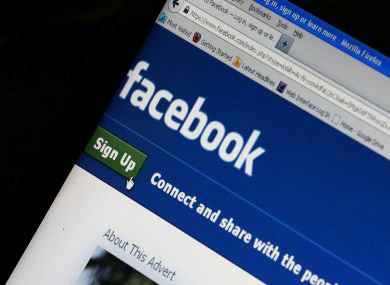 In an effort to reestablish trust and reduce their liability in the fake news mess, Facebook has started ranking news organizations on its platform, boosting them in the news feed according to how trusted they are. But the way they’re going about it makes precious little sense.
In an effort to reestablish trust and reduce their liability in the fake news mess, Facebook has started ranking news organizations on its platform, boosting them in the news feed according to how trusted they are. But the way they’re going about it makes precious little sense.
“Speaking to media executives at Facebook’s F8 developer conference Tuesday, CEO Mark Zuckerberg revealed more trusted outlets are already being boosted on the feed, while less trusted outlets are being suppressed,” writes David Gilbert in Vice News.
“The ranking system for media companies is based on data Facebook gathered from some of its more than 2 billion users, asking if they had heard of various publications and if they trust them,” Gilbert continues.
Zuckerberg didn’t give any details about how the system works, or even if the rankings will be made public. And that made Joseph Kahn, managing editor for the New York Times, incredulous.
“The institutional values of most really good media companies should transcend any individual opinion,” Kahn responded to Zuckerberg’s comments. To do otherwise, he believes, is “part and parcel of the polarization of society.”
There’s a rising chorus in the news media that Zuckerberg either doesn’t understand journalism or just doesn’t care; either way, he is completely unqualified to put this kind of ranking system into place.
“Zuckerberg runs a media company that distributes news, but doesn’t have a proper newsroom,” writes Adreinne Lafrance, editor of The Atlantic, who was in the room with Zuckerberg at Tuesday’s conference. “He runs a media company that has—with Google’s help—dominated the vast majority of digital ad dollars and eviscerated the journalism industry’s business model, all while preaching about the importance of journalism.
“He runs a media company that, he says, believes deeply in the need to sustain independent journalism, but won’t pay publishers to license journalistic content. And he runs a media company that has decided to show its users less news from professional outlets—it’s really not what people want to see, he says—in favor of more individual opinions,” Lafrance continues.
It’s the ultimate irony. The man whose company has helped to destroy journalism’s business model now aims to rebuild our trust in the media … by asking us who we trust. He’s building the ultimate echo chamber, and he’s clearly in over his head. And asking users to decide is a really bad idea – it’s already been shown that as a rule, we are miserably bad at spotting fake news versus real journalism.
“Deciding what to believe based on other people’s opinions is not only not journalistic, it’s arguably hostile to the press as a democratic institution,” Lafrance writes. “The truth may be nuanced, but reportable facts are often quite straightforward. As any journalist can tell you, the best answer to the question ‘what happened?’ is not ‘why don’t you ask a bunch of your friends what they think, organize their views along a spectrum, and then decide where to plant yourself.’”
It’s heartening to see journalists like Lafrance and Kahn asked these pointed and difficult questions of Zuckerberg … and it’s painful to see how very little Zuckerberg understands what’s really happening here.

May 11, 2018, 7:50 am